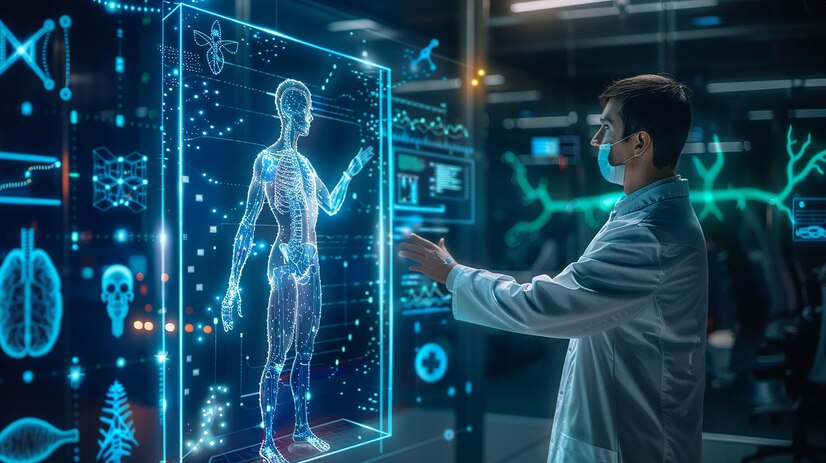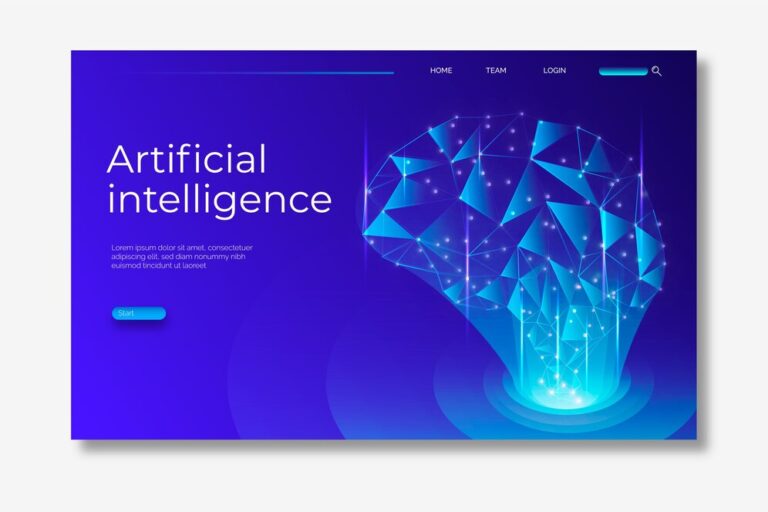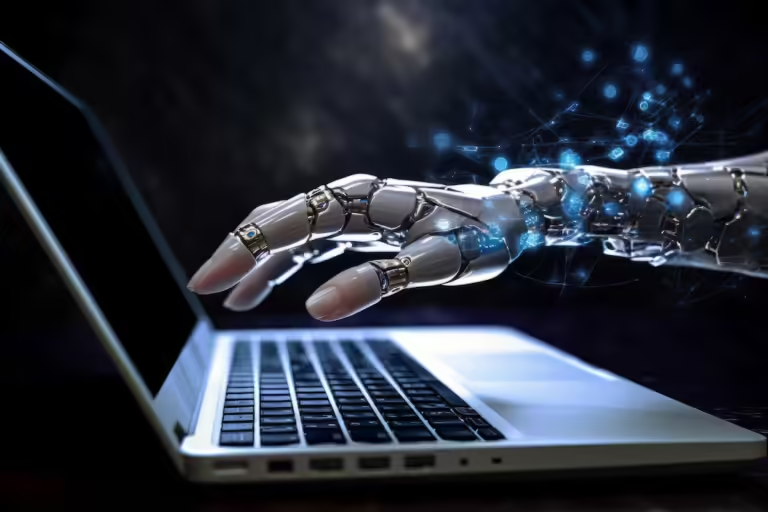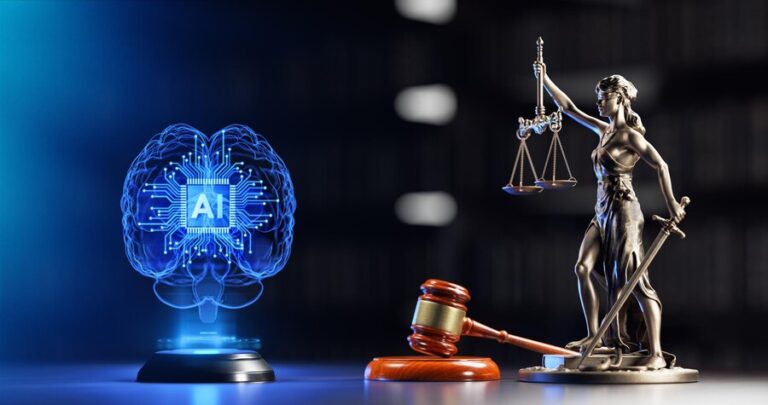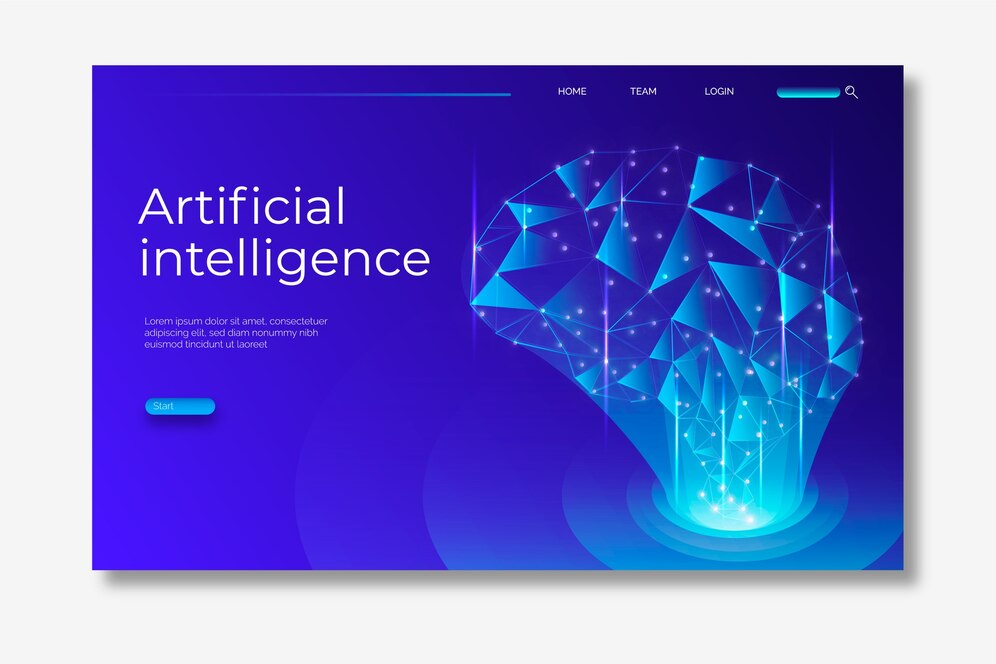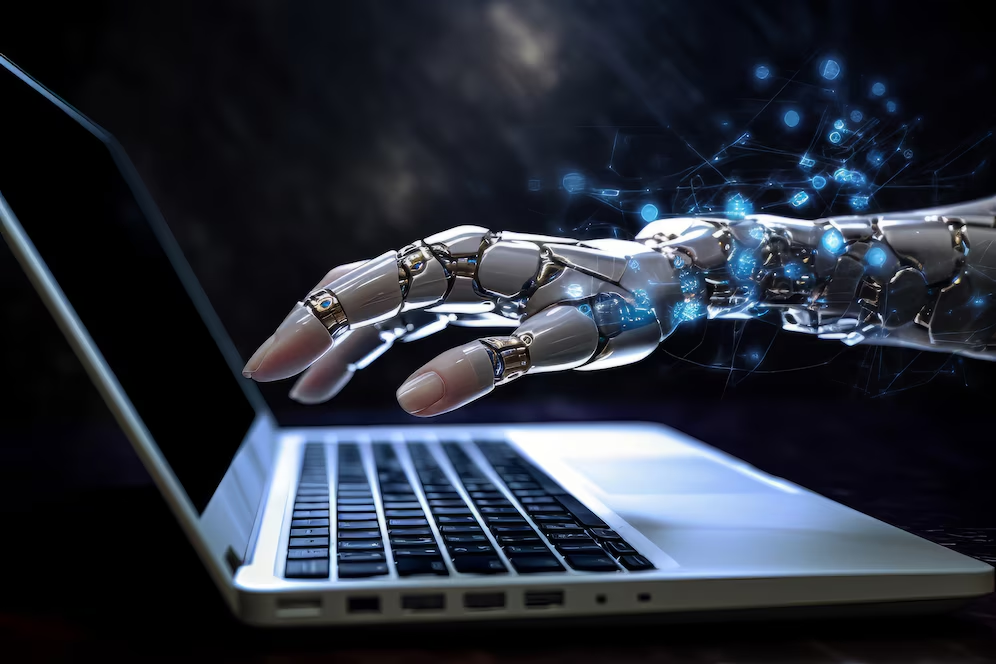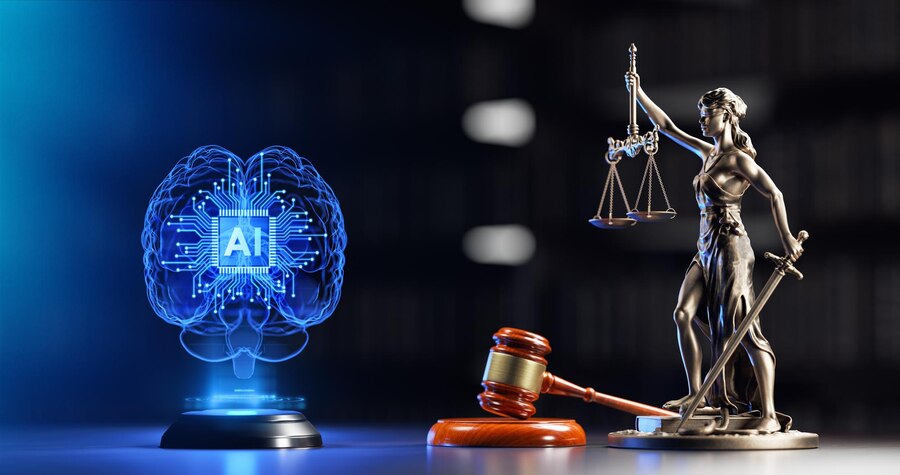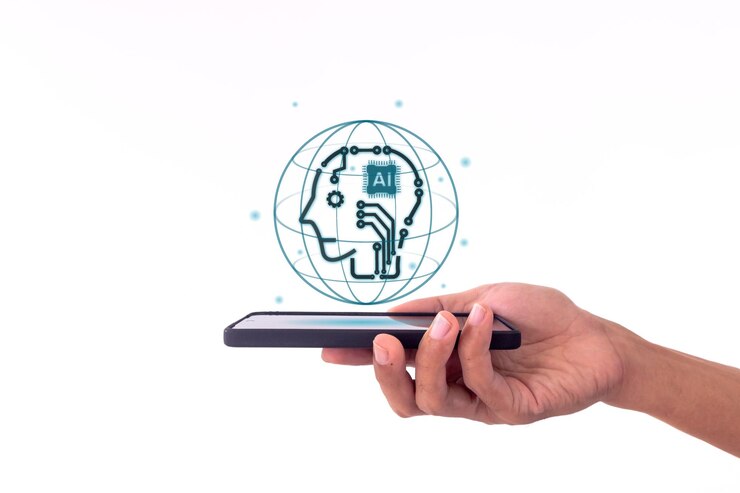Introduction
Artificial intelligence (AI) is progressively permeating various sectors, including healthcare, where it holds the promise of transforming patient care and streamlining administrative processes within provider, payer, and pharmaceutical organizations. While research indicates that AI can sometimes outperform humans in healthcare tasks—such as disease diagnosis—significant barriers remain that will likely delay the widespread adoption of AI in healthcare settings. This article explores the potential of AI to automate healthcare processes and the obstacles that prevent its rapid implementation.
Types of AI in Healthcare
AI encompasses a variety of technologies, each with specific relevance to healthcare. The following sections outline the key AI technologies currently being employed in the healthcare industry.
Machine Learning – Neural Networks and Deep Learning
Machine learning, a statistical method for model fitting and data analysis, is one of the most prevalent forms of AI. In a 2018 survey by Deloitte, 63% of U.S. companies utilizing AI reported employing machine learning in their operations. In healthcare, traditional machine learning is most commonly applied in precision medicine, predicting the success of treatment protocols based on patient attributes and treatment context. The majority of these applications rely on supervised learning, which requires a training dataset with a known outcome variable, such as disease onset.
A more sophisticated form of machine learning is the neural network, a technology that has been used in healthcare for decades. Neural networks are often employed in classification tasks, such as predicting disease occurrence based on input variables. The most advanced form of machine learning is deep learning, which involves neural networks with multiple layers of variables predicting outcomes. Deep learning is widely used in radiology for detecting cancerous lesions and is increasingly being applied to radiomics, the identification of clinically relevant features in imaging data beyond human perception. These applications are particularly common in oncology, where they promise greater diagnostic accuracy than earlier image analysis tools.
Natural Language Processing (NLP)
NLP, which focuses on interpreting and generating human language, has been a goal of AI research since the 1950s. NLP applications include speech recognition, text analysis, and language translation. In healthcare, NLP is primarily used to create, understand, and classify clinical documentation and published research. NLP systems can analyze unstructured clinical notes, prepare radiology reports, transcribe patient interactions, and facilitate conversational AI.
Rule-Based Expert Systems
Rule-based expert systems, which rely on “if-then” rules, were a dominant AI technology in the 1980s and remain widely used in healthcare for clinical decision support. These systems require human experts to develop a series of rules within a specific knowledge domain. However, as the number of rules increases, these systems can become cumbersome and difficult to maintain. Consequently, they are gradually being replaced by data-driven machine learning algorithms.
Physical Robots
Physical robots, which perform predefined tasks such as lifting, welding, or assembling, are well-established in industries like manufacturing and logistics. In healthcare, surgical robots, approved in the U.S. since 2000, enhance surgeons’ capabilities by providing improved visualization, precision, and minimally invasive techniques. While human surgeons still make critical decisions, robots assist with tasks like stitching wounds and making precise incisions.
Robotic Process Automation (RPA)
RPA automates structured digital tasks, such as data entry and billing, by mimicking human actions within information systems. RPA is relatively inexpensive, easy to program, and transparent in its operations. In healthcare, RPA is commonly used for tasks like prior authorization, patient record updates, and claims processing. As AI technologies continue to evolve, RPA is increasingly being integrated with other AI capabilities, such as image recognition, to enhance its functionality.
Diagnosis and Treatment Applications
AI has been applied to healthcare diagnosis and treatment since the 1970s, with early systems like MYCIN developed at Stanford for diagnosing bacterial infections. More recently, IBM’s Watson has gained attention for its focus on precision medicine, particularly in cancer diagnosis and treatment. Watson combines machine learning and NLP but has faced challenges in integrating with clinical workflows and medical record systems.
Despite the potential of AI-based diagnosis and treatment, implementation challenges persist, particularly in integrating these technologies with existing clinical processes and electronic health record (EHR) systems. Although some EHR vendors have begun incorporating limited AI functions, widespread adoption remains a significant challenge.
Patient Engagement and Adherence Applications
Patient engagement and adherence are critical to achieving positive health outcomes. AI technologies, particularly machine learning, are increasingly being used to personalize care recommendations and encourage patient compliance with treatment plans. By analyzing data from EHR systems, biosensors, and other devices, AI can provide targeted interventions and recommendations to patients, healthcare providers, and care coordinators.
Administrative Applications
AI is also being applied to administrative tasks in healthcare, such as claims processing, revenue cycle management, and medical records management. RPA is particularly well-suited to these tasks, as it can automate repetitive processes and improve efficiency. Additionally, NLP-based chatbots are being used for patient interactions, although concerns about privacy and usability remain.
Machine learning is also being used in claims and payment administration to match data across databases and identify coding errors. This technology can help insurers and providers save time and money by reducing incorrect claims and improving data accuracy.
Implications for the Healthcare Workforce
There is ongoing debate about the potential for AI to automate jobs and displace workers in healthcare. While some studies suggest that AI could lead to significant job loss, others argue that external factors, such as the cost of automation technologies and labor market dynamics, will limit the impact. In healthcare, AI is more likely to augment human work rather than replace it, particularly in fields like radiology and pathology, where AI can assist with image analysis but is unlikely to fully replace human clinicians.
Ethical Implications
The use of AI in healthcare raises important ethical questions, particularly regarding transparency, accountability, and privacy. For example, deep learning algorithms used in image analysis are often difficult to interpret, making it challenging to explain AI-generated diagnoses to patients. Additionally, there are concerns about algorithmic bias and the potential for AI systems to make mistakes in patient care.
To address these issues, healthcare institutions and regulatory bodies must establish frameworks for monitoring AI applications, ensuring transparency, and mitigating negative consequences.
The Future of AI in Healthcare
AI is poised to play a significant role in the future of healthcare, particularly in the development of precision medicine. While the technology is advancing rapidly, widespread adoption in clinical practice will require overcoming regulatory, integration, and standardization challenges. AI is unlikely to replace human clinicians but will instead augment their work, allowing them to focus on tasks that require uniquely human skills such as empathy and complex decision-making.
In summary, AI holds great promise for transforming healthcare, but its successful implementation will depend on careful consideration of ethical, regulatory, and practical challenges.
AI-Driven Precision Medicine: The Next Frontier
One of the most promising areas of AI application in healthcare is precision medicine. This approach involves tailoring medical treatment to the individual characteristics of each patient, often based on genetic, environmental, and lifestyle factors. AI’s ability to analyze vast datasets and identify patterns makes it an ideal tool for precision medicine, where the goal is to predict the most effective treatment strategies for individual patients.
For example, AI algorithms can analyze genetic information alongside clinical data to predict how a patient will respond to a particular medication. This capability is especially valuable in oncology, where treatments can vary significantly in effectiveness based on the genetic makeup of a patient’s tumor. By leveraging AI, clinicians can identify the most effective therapies, reducing the trial-and-error approach often seen in cancer treatment.
Moreover, AI can help in identifying patients who are at higher risk of developing certain diseases based on their genetic profile. For instance, in the case of hereditary conditions like BRCA-related breast cancer, AI can analyze genetic data to predict the likelihood of disease occurrence and guide preventive measures. This predictive power of AI extends beyond genetics to include other data types, such as imaging, environmental exposure, and even social determinants of health, enabling a more holistic approach to patient care.
AI in Genomics and Personalized Medicine
Genomics is another area where AI is making significant strides. The human genome comprises approximately 3 billion base pairs, and interpreting this massive amount of data to identify relevant mutations or variations is a complex task. AI, particularly deep learning models, has proven capable of sifting through genomic data to identify mutations associated with diseases like cancer, rare genetic disorders, and other conditions.
One notable example of AI in genomics is its use in analyzing whole-exome sequencing data to identify pathogenic variants in patients with undiagnosed conditions. Traditionally, this process required significant manual effort and expertise, but AI can automate much of the analysis, making it faster and more accessible. This technology is particularly impactful in identifying potential targets for gene therapy, where precise genetic modifications are required to treat or cure genetic disorders.
Furthermore, AI-driven tools are being developed to assist in the design of personalized vaccines and therapies, particularly in cancer treatment. For example, AI can analyze a patient’s tumor genome to identify neoantigens—mutated proteins that are unique to cancer cells—and help design personalized vaccines that stimulate the immune system to target these specific cancer cells. This level of personalization in treatment represents a significant advancement in how diseases, particularly cancers, are managed and treated.
The Role of AI in Drug Discovery and Development
The drug discovery process is notoriously time-consuming and expensive, often taking over a decade and billions of dollars to bring a new drug to market. AI is poised to revolutionize this process by significantly accelerating the discovery of new drugs and identifying new uses for existing drugs.
AI can analyze vast datasets of chemical compounds and biological data to identify potential drug candidates much faster than traditional methods. Machine learning models can predict how different compounds will interact with biological targets, allowing researchers to focus on the most promising candidates. This capability is particularly valuable in the early stages of drug discovery, where thousands of compounds need to be screened to identify a few that may have therapeutic potential.
Moreover, AI is being used to predict potential side effects and toxicities of drug candidates before they reach clinical trials. By analyzing data from previous drug trials, electronic health records, and other sources, AI can identify patterns and predict how new drugs might affect patients. This predictive capability helps reduce the risk of late-stage failures in drug development, saving time and resources.
Another exciting application of AI in drug development is in the area of drug repurposing—finding new therapeutic uses for existing drugs. AI can analyze data from clinical trials, literature, and other sources to identify drugs that might be effective for conditions other than those for which they were originally developed. This approach has the potential to bring effective treatments to market faster since repurposed drugs have already passed safety tests in humans.
For example, during the COVID-19 pandemic, AI was used to rapidly identify potential treatments by analyzing existing drugs and their interactions with the SARS-CoV-2 virus. This approach helped accelerate the identification of drugs that could be repurposed to treat COVID-19, demonstrating the power of AI in responding to emerging health crises.
AI and Telemedicine: Expanding Access to Care
Telemedicine, the delivery of healthcare services remotely, has seen exponential growth, especially in the wake of the COVID-19 pandemic. AI plays a crucial role in enhancing telemedicine by providing tools that support remote diagnosis, monitoring, and patient management.
For instance, AI-powered diagnostic tools can analyze images, such as X-rays or MRIs, remotely and provide instant feedback to healthcare providers. This capability is especially beneficial in rural or underserved regions, where specialist care is often scarce or difficult to access.. Patients can receive expert opinions without needing to travel long distances, improving access to care and reducing the burden on healthcare systems.
AI is also being used to monitor patients with chronic conditions remotely. Wearable devices that track vital signs, such as heart rate and blood pressure, can feed data into AI systems that analyze trends and detect early signs of deterioration. These systems can alert healthcare providers to potential issues before they become critical, enabling timely interventions and reducing hospitalizations.
Furthermore, AI-powered chatbots and virtual assistants are being integrated into telemedicine platforms to provide patients with instant support and guidance. These tools can answer common questions, schedule appointments, and even triage symptoms, directing patients to the appropriate level of care. By automating routine tasks, AI helps reduce the workload on healthcare providers and ensures that patients receive timely and accurate information.
Ethical Considerations in AI-Driven Healthcare
As AI continues to integrate into healthcare, ethical considerations become increasingly important. A major concern centers around the challenge of maintaining transparency.. Many AI algorithms, particularly deep learning models, operate as “black boxes,” meaning that their decision-making processes are not easily understood, even by the developers who created them. This lack of transparency can be problematic in healthcare, where patients and providers need to understand the rationale behind medical decisions.
For example, if an AI system recommends a specific treatment plan for a patient, the patient may want to know why that recommendation was made. However, deep learning models often make decisions based on complex patterns in data that are not easily interpretable. This can lead to challenges in patient communication and informed consent, as patients may be reluctant to trust recommendations that cannot be fully explained.
Another ethical challenge lies in the risk of bias within AI algorithms.. AI systems are only as good as the data they are trained on, and if the training data is biased, the AI’s decisions will be biased as well. In healthcare, this could lead to disparities in treatment outcomes based on factors such as race, gender, or socioeconomic status. For instance, if an AI system is trained primarily on data from one demographic group, it may not perform as well for patients from other groups, leading to unequal access to care and potentially harmful outcomes.
Data privacy is another critical concern in AI-driven healthcare. AI systems require large amounts of data to function effectively, and much of this data is sensitive patient information. Ensuring that this data is stored, processed, and shared securely is essential to protecting patient privacy. Moreover, patients must have control over how their data is used and must provide informed consent before their data is utilized in AI applications.
The Future of AI in Healthcare: Integration and Collaboration
Looking ahead, the future of AI in healthcare will likely involve greater integration and collaboration between AI systems and human healthcare providers. Rather than replacing clinicians, AI is expected to serve as a powerful tool that enhances human capabilities, allowing healthcare providers to focus on tasks that require empathy, creativity, and complex decision-making.
One of the key challenges in achieving this integration is ensuring that AI systems are seamlessly incorporated into existing healthcare workflows. This requires collaboration between AI developers, healthcare providers, and regulatory bodies to create systems that are user-friendly, reliable, and aligned with clinical practices. For example, AI systems must be designed to work within the constraints of EHR systems, providing recommendations that are easy to understand and act upon within the context of patient care.
Education and training will also play a crucial role in the successful adoption of AI in healthcare. Healthcare providers need to be trained not only in how to use AI tools but also in how to critically evaluate AI-generated recommendations. This will require a shift in medical education to include a greater focus on data science, AI, and digital health technologies.
Furthermore, as AI continues to evolve, there will be a growing need for interdisciplinary collaboration. AI developers will need to work closely with healthcare providers, ethicists, and patients to ensure that AI systems are designed with the end-user in mind and that they address the real-world challenges faced in healthcare settings. This collaborative approach will be essential to developing AI systems that are both effective and ethical.
Conclusion
AI is poised to revolutionize healthcare by enhancing the precision, efficiency, and accessibility of medical care. From precision medicine and drug discovery to telemedicine and patient engagement, AI offers numerous opportunities to improve healthcare outcomes and reduce costs. However, realizing the full potential of AI in healthcare will require overcoming significant challenges, including ethical considerations, integration with existing systems, and ensuring that AI systems are transparent, unbiased, and secure.
As the healthcare industry continues to embrace AI, it is essential to approach its implementation thoughtfully, with a focus on collaboration, education, and patient-centered care. By doing so, AI can serve as a powerful ally in the quest to improve health outcomes and make healthcare more equitable and accessible for all.

